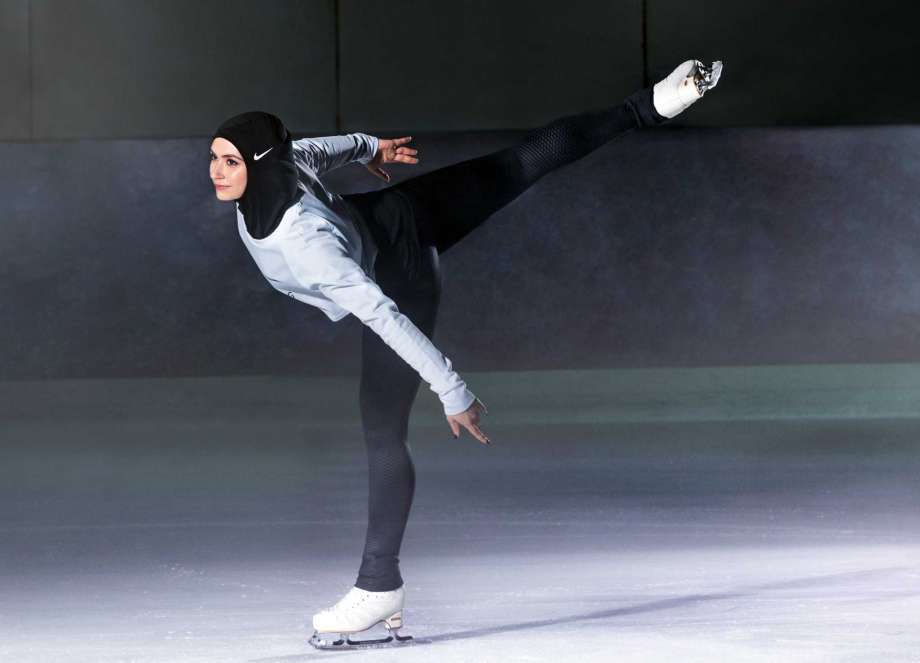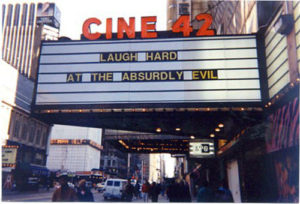Easy answer: Of course they won’t. Not by a long shot.
More astute answer: But they sure can help.
Look, I know: They aren’t exactly doing it out of the goodness of their hearts.
Which is to say: The Googles, Apples, Nikes, Fords, SalesForces, Facebooks and LinkedIns and all the rest of the more progressive-seeming companies in the world aren’t in semi-controversial support of friendlier immigration laws, gay marriage rights, multiculturalism, religious tolerance, climate science, et al because it’s the righteous and morally correct thing to do. Not entirely, anyway.
They do it, of course, because – unless you’re some hideous right-wing clenchball like Hobby Lobby or Chik-fil-A (not megacorps, just obnoxious) – it matters very much to their bottom lines, to how well they attract young, increasingly progressive employees, to their corporate images, to whether they have the right cache, hipster cred, viral-making potential, the social thumbs-up from both the Wall Street Journal and Teen Vogue.
Which leads us, if you must, to this oddball little creation from the world’s largest fitness brand: the Nike Hijab Pro.
That’s right, it’s a professional-grade Muslim headscarf (all the others are, presumably, merely for amateurs) targeting semi-traditional Islamic female athletes who wish to remain covered, yet who still wish to break all other stereotypes (and fundamentalist constraints) of Muslim female athletes by competing on the international stage.

A little glam with your sportily branded religious tradition? I guess.
A sports hijab? Seems silly. Seems odd. Almost seems like Nike, who reportedly spent 13 months developing the thing, is trying to do something positive, insofar as the company is responding to the wishes of at least a few of the world’s top Muslim female athletes – weightlifter Amna Al Haddad, runner Sarah Attar and figure skater Zahra Lari, most specifically – supporting their choice to wear what many perceive as a symbol of oppression, not freedom (Haddad, for one, would disagree).
This is, of course, not really the case at all. Nike is not stupid. Nike is worth something like 197 trillion dollars. Nike has done its research, understands the nefarious mechanics of controversy, attention-getting, YouTube. Nike, in short, has never met a niche it cannot exploit, a viral marketing opportunity it will not consider.
As Fortune put it (in the way only Fortune can):
If Nike’s Pro Hijab campaign is successful, executives could also position the company to introduce Muslim women to athleisure wear, an already growing market that is projected to top $350 billion by 2020 for brands that cater to every style and choice from yoga to basketball.
Translation: Just another opportunity to cash in on a hotly burgeoning demographic and, oh, what’s that? Cause controversy, make lots of headlines, spread a viral video or three and sorta-kinda appear daring and open-minded? Perfect. (For the record: Nike did not invent the sports hijab – it just gave it massive, timely visibility).
As controversies go, this one’s fairly hollow: Like many companies with primarily young-ish market, Nike well knows it’s better off, in the long run, risking the old-man wrath of racist Trumpites, GOP trolls and crusty Islamic fundamentalists – not to mention those who claim, with a decidedly mixed understanding of cultural context, that the hijab represents oppression – in favor of attracting a lucrative new demographic by way of showing its support of female athletes across all cultures and traditions.
Here’s the broader question: Does it matter? Do you care about Nike’s real motives? Do you trust, say, Apple CEO Tim Cook, when he vehemently defends gay rights and Apple’s policies therein? I do. Then again, there he was, two seats down from the Orange Goblin at Trump’s first, excruciating “tech summit,” trying to keep his soul from exploding. Hey, a global CEO’s gotta do what a CEO’s gotta do, right? And Trump could make things very painful indeed for many an international brand, via tariffs, constrictive manufacturing laws, his idiotic “America First” pseudo-jingoism.
Nevertheless, it was hard not to be heartened when 127 of America’s top tech companies, from Apple to Netflix to Facebook, signed an amicus brief protesting Trump’s Muslim ban.
Do these companies really only care about how they won’t be able to lure new programming talent from abroad? Probably. Does it matter? Does it matter that Wal-Mart and Costco are the biggest promoters of organic food in the world? That they are increasingly on the forefront of green energy, not because it’s the morally right thing, but because they damn well know they can’t rake in billions when the planet explodes?
It’s a mixed moral bag, surely. But when 127 major companies sign a protest letter against the worst president in American history, it makes a difference. It makes headlines, creates a certain kind of energy, adds to the fire and the mindshare of resistance. Put another way: Question the authenticity of the gesture all you like, but in times of brutal social calamity and the flagrant destruction of democracy and our fundamental humanity, we need all the help we can get.
After all, it’s capitalism. To paraphrase the great sage Homer: It’s the cause of – and solution to – all life’s problems.
Read more here:: The Nike Pro Hijab asks: Will megacorps be the real #antiTrump?



